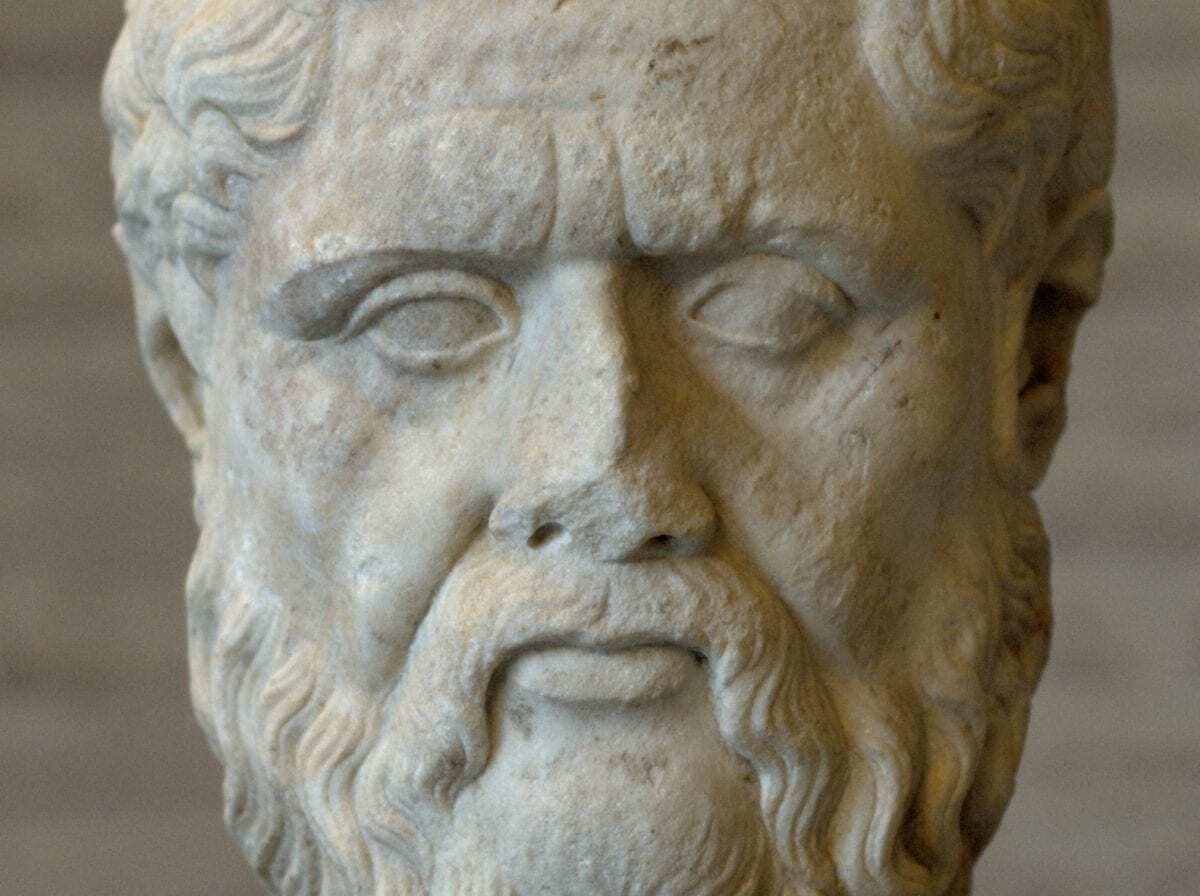A new study revealed in a book reveals how Plato lent his name to Platonic love – Plato never advocated love without sex.
Plato and his college of students documented the scientific and philosophical views of the ancient Greeks, information which became the founding documents used in many aspects of Western culture today.
“Plato – the Einstein of Greece’s Golden Age – was long thought to favour love without sex, or ‘Platonic love’, but this new research reveals Plato was far from being a prude,” says Dr Kennedy, who is based in the Centre for the History of Science, Technology and Medicine, part of the University’s Faculty of Life Sciences.
Plato led a colourful and fascinating life. Born four centuries before Christ, when Sparta defeated plague-ravaged Athens, he wrote 30 books and founded the world’s first university, called the Academy. In addition, he was captured by pirates and sold into slavery before being ransomed by friends.
Dr Kennedy added “The decoded symbols in fact show that Plato was not an advocate of Platonic love at all; rather he urged a middle path. For him, morality meant moderation – he wanted people to avoid both promiscuity and abstinence.
The research shows a different side to Platos ideas “Before Plato, sex was about rutting and producing heirs. Plato marks a shift in the history of Western sexuality and some say he invented romance, but, for him, erotic passion was a spiritual force that helps us find our true selves within the deepest, human bond. Eros, or love, was a creative force that inspired art, literature, and the sciences.”
Dr Kennedy cracked the code within Plato’s texts last year when an unexpected insight led him to realise that Greek music was key to interpreting the writings of the Athenian philosopher and mathematician. Kennedy’s new book, The Musical Structure of Plato’s Dialogues, reports on the hidden doctrines revealed so far, including those in The Symposium, a philosophical text concerned with love.
Socrates was later executed for corrupting the morals of young people and Dr Kennedy has now shown that Plato, also fearing persecution, hid his own philosophy using a system of musical symbols.
“Plato divided each of his writings into 12 parts, inserting a symbol marking a musical note at each twelfth,” explains Dr Kennedy. “At harmonious notes he placed positive ideas such as love and goodness, while at dissonant notes he placed negative ideas such as rejection, quarrelling and evil. These musical patterns are a hidden commentary on Plato’s stories and tell us which characters and which ideas he favoured.”
In The Symposium – Plato’s great play about love and sex – cheap attempts to trade sex for profit or favour sit above dissonant notes in the musical scale showing Plato’s disapproval. But passages about erotic passion born of an abiding love for another’s soul sit on top of some of the most harmonic notes, meaning he accepted sex as a part of true love.
There are also a number of symbols that reveal that Plato rejected both promiscuity and asceticism. It can now be definitely shown that, for Plato, virtue was a middle path or mean that avoided extremes.
The term ‘Platonic love’ originated only 500 years ago. In the Renaissance, postponing sex was an important step toward the equality of women; the Queen of England even commissioned plays to spread the idea. At a time when women were treated as slaves or baby-machines, Platonic love meant longer courtships and delaying the dangers of childbirth.
Kennedy adds: “At the beginning of the modern era, women cleverly used Plato’s reputation as a genius to get men to pay attention to their minds. Platonic love was an argument for not settling down and allowing women to participate in arts and culture in the royal court. When sex often meant an early death, Plato was a licence for having more fun.
“Plato’s importance cannot be overstated. He shifted humanity from a warrior society to a wisdom society. Today, because of him, our heroes are Einstein and Shakespeare and not knights in shining armour.”
“Be kind, for everyone you meet is fighting a hard battle.”
“If women are expected to do the same work as men, we must teach them the same things.”
“Ignorance: the root of all evil.”
“Only the dead have seen the end of war.”
“The price good men pay for indifference to public affairs is to be ruled by evil men.”
“Wise men talk because they have something to say; fools, because they have to say something.”
Header Image Credit : Silanion





